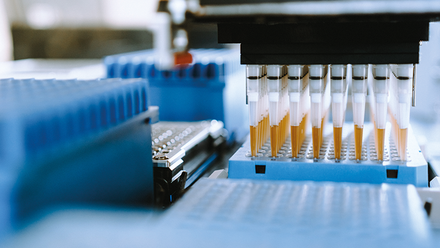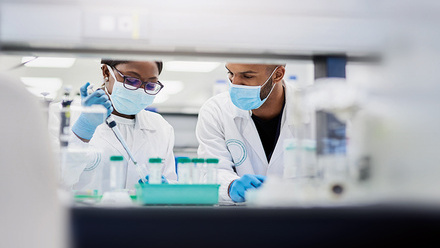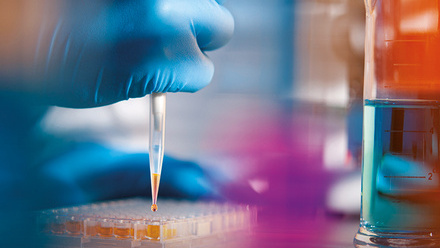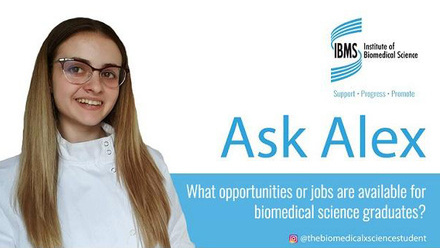My Lab: From insects to Genomics
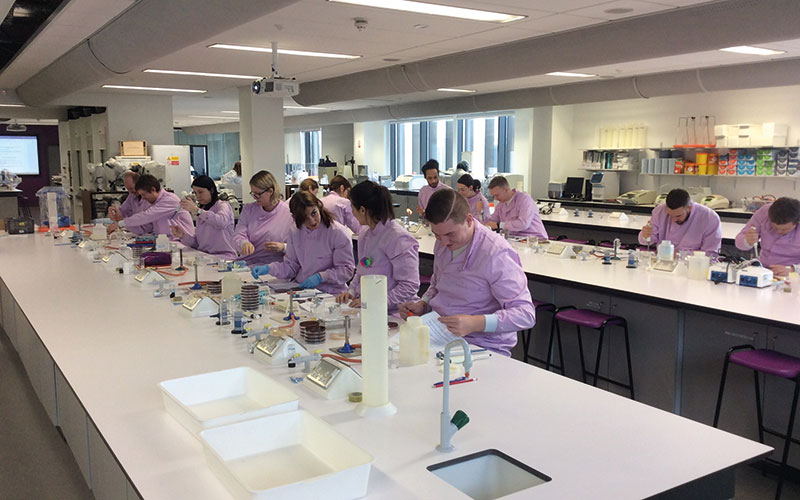
For many of us, university laboratory practicals were where our love for bench science grew. They were an opportunity to apply the academic theory taught in lectures, to learn new skills, and to problem-solve and work with our peers.
We all probably have memories of experiments that worked, and those that didn’t. We may remember scribbling results in our lab books and trying to remember exactly which concentration of reagent we had used. We will all remember the feelings we had when we first worked independently on our final-year projects, and the relationships that we developed with the technical staff, our supervisor and our peers.
At Staffordshire University we believe that the learning opportunities that practical sessions provide are invaluable in students’ development. They do not just to tie together academic knowledge and practical competence, but are also part of a much wider transition in identity, as students become scientists through enquiry, managing uncertainty, collaboration and autonomy.
Our laboratories opened in 2012 as integral features of our new £30m Science Centre. Designed to provide flexible learning and teaching spaces, they consist of several large open-plan teaching laboratories, each capable of holding 80 students at a time, together with a variety of facilities to support specialist teaching and research. As academics, our teaching covers the breadth of biology and biomedical science from ecology to genomics, and so facilities include everything from an insectary and electron microscopy, to cell culture and genomic sequencing. Students can work within our analytical suite, developing HPLC and GC-MS methods, and collaborate with sports science, psychology, and forensics colleagues to explore experimentation in exercise physiology, EEGs, and ballistics.
For biologists our laboratory is not always indoors, and so our campus also includes a 10-hectare nature reserve with a diversity of habitats, including the River Trent, woodlands, reed marsh, and grassland. Not only does this provide specialist opportunities to study ecological techniques and environmental management, but it gives all our students invaluable opportunities to develop the transferable skills of sampling, identification, and experimental design.
Pivotal to our laboratory teaching are our technical skills specialists, who support staff in the development of experimental ideas, source and prepare equipment for each session, and work with our students to grow their practical skills and confidence. To develop these further, we work hard to enrich practical sessions, for example embedding decision-making, ethical discussions, or quality assurance. As an example, our “virtual” blood bank practical not only allows students to contextualise the theory of antibody-antigen reactions by undertaking bench blood grouping, but also encourages them to consider the practical issues of blood product management, inappropriate requests, and ethical considerations. By not only focusing upon the practical skill, we aim to prepare students for autonomous practice.
With our laboratories in use for undergraduate teaching all week, together with specialist short courses for our MSc students, Healthcare Science Apprenticeship study days, and schools and colleges visiting for our STEM “outbreak” masterclasses, our laboratories are always a hive of activity developing
the next generation of scientists.

